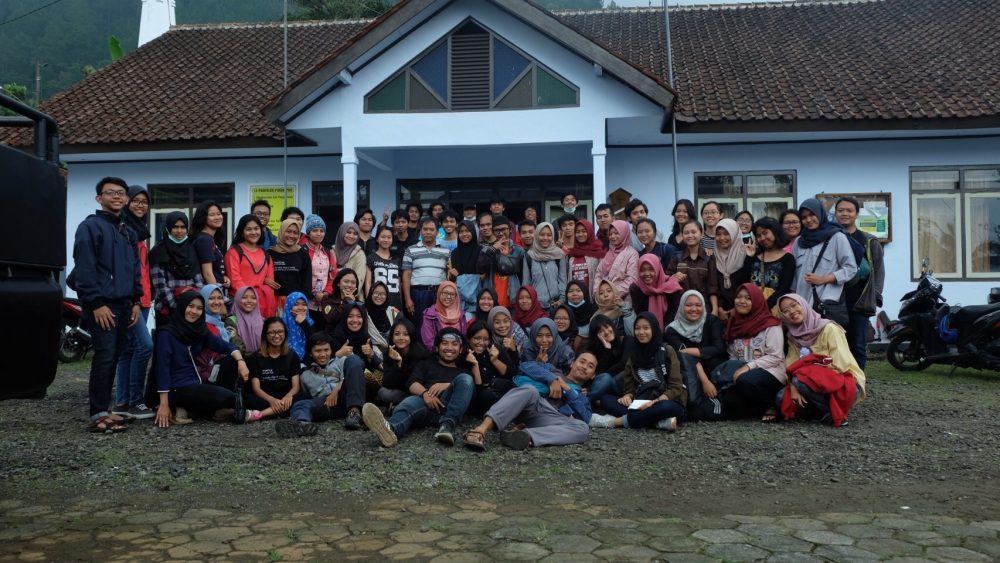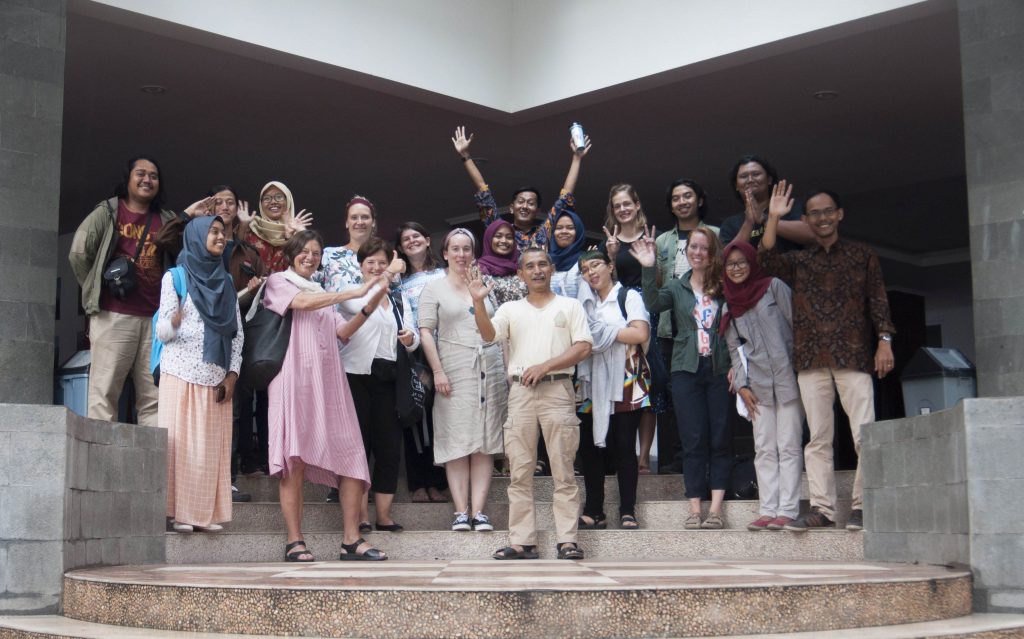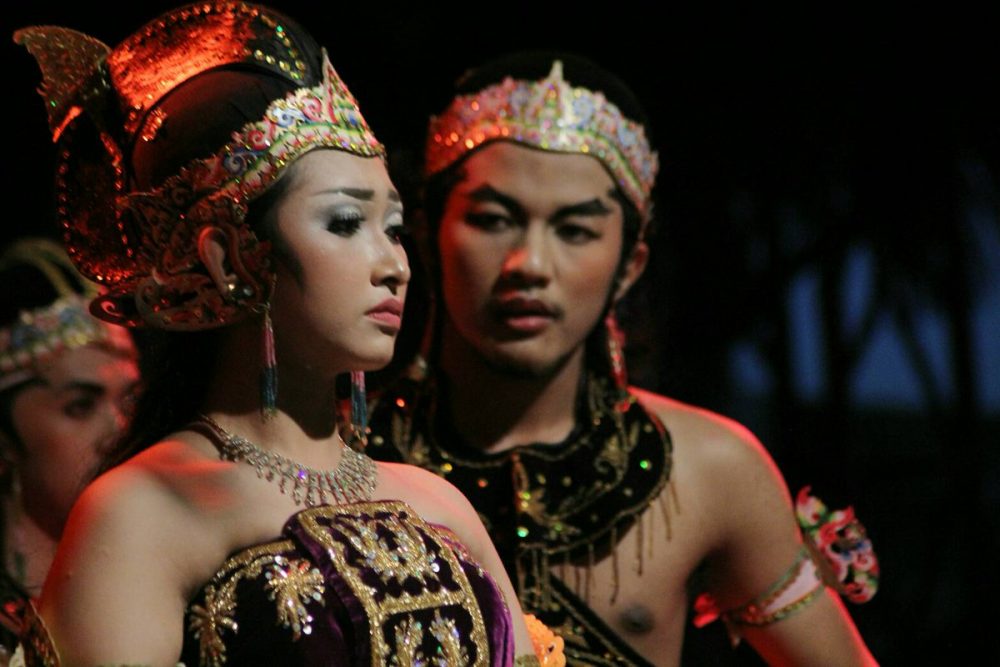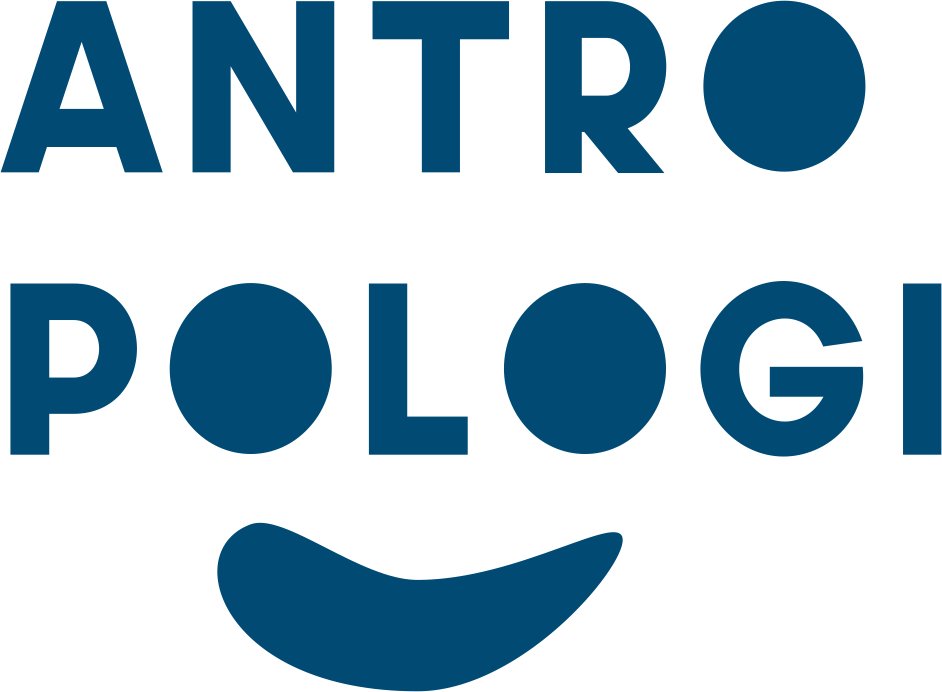Student Activities
Field Research Team (TPL)
 Research is an activity carried out for the process of collecting data. In addition to conducting library studies, the process to collect data can also be obtained by conducting field studies. Field studies in this case are conducting field research or it can also be known as ethnographic research which is a research activity to produce ethnographic work. The Anthropology Field Research Team or TPL Anthropology is one of the agendas that are often carried out by students of Cultural Anthropology, Universitas Gadjah Mada. This research consists of a research team of UGM Cultural Anthropology students to conduct joint research. In carrying out research, researchers usually come and blend in with the community studied through several approaches taken to get information about all people’s lives and cultures. Understanding and application of research theories and techniques has a very important meaning when carrying out this data collection activity. After TPL activities in the field, there will also be a TPL seminar in which will present and discuss the data that has been obtained in the field in the hope that the experiences that have been in the field can be evaluated so that in the future it can produce good ethnographic work. Read more about the Field Research Team here.
Research is an activity carried out for the process of collecting data. In addition to conducting library studies, the process to collect data can also be obtained by conducting field studies. Field studies in this case are conducting field research or it can also be known as ethnographic research which is a research activity to produce ethnographic work. The Anthropology Field Research Team or TPL Anthropology is one of the agendas that are often carried out by students of Cultural Anthropology, Universitas Gadjah Mada. This research consists of a research team of UGM Cultural Anthropology students to conduct joint research. In carrying out research, researchers usually come and blend in with the community studied through several approaches taken to get information about all people’s lives and cultures. Understanding and application of research theories and techniques has a very important meaning when carrying out this data collection activity. After TPL activities in the field, there will also be a TPL seminar in which will present and discuss the data that has been obtained in the field in the hope that the experiences that have been in the field can be evaluated so that in the future it can produce good ethnographic work. Read more about the Field Research Team here.
Tandem
 In the Department of Cultural Anthropology UGM, there is also a tandem. What is tandem? Of course, not two or more bicycles are assembled into one and then pedaled together. Tandem here means a cooperation program with overseas universities in order to conduct a research or field research. In other words, tandem is the sending of students either from outside here, or those from here to abroad with the aim of researching in an area with a particular theme and topic. For example, this three-year routine is held every year, namely tandem students of the University of Toronto, Canada. Some students from the university who come from various scientific backgrounds, especially anthropology in collaboration with our campus in research projects in Kalimantan (2009 and 2010), and the one that has just been completed last August is Langan Research Engineering (TPL) to Dieng. Before leaving for Kalimantan and Dieng, the foreign students studied first Indonesian and several other preparations here for approximately 2 months and each of them was accompanied by a student of Cultural Anthropology UGM until the program was completed. The foreign student can stay at the student’s house here or can also rent a boarding room, especially if his tandem partner does not have a house in Jogja because he comes from another city or area. Also routine since 2004 is a German tandem in partnership with Albert-Ludwigs University, Freiburg. Tandem this one is not only a one-way student delivery, but two-way or student exchange. So in addition to students from Germany came here to research with UGM Cultural Anthropology students for 1 month, after that it was the turn of students from our department who left for Germany, precisely to Freiburg. However, of course through the selection process. Unlike other tandems who are interested, please register. Dita, a 2010 student who had been a foreign student from Toronto for a research project to Dieng said that in tandem there was a symbiosis of mutualism; When foreign students go to Indonesia, we can study between cultures. “We learn about them, they learn about us. And strengthen the relationship between our majors and their coaches.” Meanwhile, Ali, a 2008 student who had been to Germany said that tandem is very important and useful because it “opens up networks in the international sphere and gives the opportunity to get a new perspective in an anthropological perspective because of cross-curriculum dialogue”. While in Germany, he researched the conflicts of religion-based ethnicity andcitizenship. The results of this tandem research in the form of final reports in the form of articles presented in seminars are also published in book form. For information, new students can also join various existing tandem projects. So, for those of you who are interested and interested, sumonggo!
In the Department of Cultural Anthropology UGM, there is also a tandem. What is tandem? Of course, not two or more bicycles are assembled into one and then pedaled together. Tandem here means a cooperation program with overseas universities in order to conduct a research or field research. In other words, tandem is the sending of students either from outside here, or those from here to abroad with the aim of researching in an area with a particular theme and topic. For example, this three-year routine is held every year, namely tandem students of the University of Toronto, Canada. Some students from the university who come from various scientific backgrounds, especially anthropology in collaboration with our campus in research projects in Kalimantan (2009 and 2010), and the one that has just been completed last August is Langan Research Engineering (TPL) to Dieng. Before leaving for Kalimantan and Dieng, the foreign students studied first Indonesian and several other preparations here for approximately 2 months and each of them was accompanied by a student of Cultural Anthropology UGM until the program was completed. The foreign student can stay at the student’s house here or can also rent a boarding room, especially if his tandem partner does not have a house in Jogja because he comes from another city or area. Also routine since 2004 is a German tandem in partnership with Albert-Ludwigs University, Freiburg. Tandem this one is not only a one-way student delivery, but two-way or student exchange. So in addition to students from Germany came here to research with UGM Cultural Anthropology students for 1 month, after that it was the turn of students from our department who left for Germany, precisely to Freiburg. However, of course through the selection process. Unlike other tandems who are interested, please register. Dita, a 2010 student who had been a foreign student from Toronto for a research project to Dieng said that in tandem there was a symbiosis of mutualism; When foreign students go to Indonesia, we can study between cultures. “We learn about them, they learn about us. And strengthen the relationship between our majors and their coaches.” Meanwhile, Ali, a 2008 student who had been to Germany said that tandem is very important and useful because it “opens up networks in the international sphere and gives the opportunity to get a new perspective in an anthropological perspective because of cross-curriculum dialogue”. While in Germany, he researched the conflicts of religion-based ethnicity andcitizenship. The results of this tandem research in the form of final reports in the form of articles presented in seminars are also published in book form. For information, new students can also join various existing tandem projects. So, for those of you who are interested and interested, sumonggo!
Pitik Command
Pitik Command, or commonly called Kopit, is an annual tradition that is commonly carried out by all citizens of Cultural Anthropology UGM, including students from various generations, both old (senior) and young forces. Called Pitik Command because basically the event that is done is to gather and then together cook and burn chicken. Kopit is usually carried out in Kaliurang villa, in order to get a spacious place with a relaxed atmosphere. Activities carried out during coffee are not much different from the usual activities done during the night of familiarity (makrab). In addition to cooking, other activities that are commonly done are singing together accompanied by a campfire, watching a movie on the screen, or just chatting and joking with fellow Anthropology citizens. Essentially the activities carried out when coffee is aimed at having fun and momentarily staying away from the world of lectures. In addition to being a place to have fun, kopit is also a means to familiarize each other between the generations and lecturers. Because there is no term old or young, there are only Anthropological citizens who want to have fun and also get closer to each other.
Wayang Antro
 Every year anthropology majors commemorate Dies Natalis with a series of events in it, including public lectures, photography exhibitions and seminars. At its peak it closed with the staging of an anthropological puppet. Better known as wayang antro. This performance was presented by students majoring in anthropology. Starting from upper class students to new students. Through this staging the talents of students in the field of art, especially role art can be channeled and appreciated. “This event helped me who is not from ‘original art people’ to get to know art more deeply, and I feel happy to be involved in it,” said Dian Buana Putri (Parti), one of the puppet players at Dies Natalis 2011. In the 1980s to 1990s wayang antro was famous but after that also experienced a vacuum period and began to be staged again in 2009 with the play “Burisrawa Rante”, “Sinta Ilang” (2010), and in 2011 then titled “Dursasana Gugur”. Usually the play that is played contains issues that are hot in the campus environment. The goal is not to get boring. As diaz A.P as the puppeteer of antro puppet, “Personally in my opinion, so as not to be boring and connected with the current context then tucked into actual ideas and issues”. The staging of puppet antro not only presents the art of role, but also the art of dance and gemlean. To join an antro puppet player usually the registration is done openly for all students of Cultural Anthropology. After the players are collected, then discussed and determined what play will be played at the peak of the dies natalis. Registration is open two to three months before the performance, while for the rehearsal, both for the cast, dancers, synden and the drummer (gamelan grower) starting from a month before the performance. But if there is a shortage of players, it will be appointed by the director. “Puppet antro is not just a show, but has become a tradition in the antopology itself. In addition, through puppet antro, we also try to participate in preserving traditional art. Bravo wayang antro!” said Khairunnisa, as chairman of KEMANT for the period 2012-2013.
Every year anthropology majors commemorate Dies Natalis with a series of events in it, including public lectures, photography exhibitions and seminars. At its peak it closed with the staging of an anthropological puppet. Better known as wayang antro. This performance was presented by students majoring in anthropology. Starting from upper class students to new students. Through this staging the talents of students in the field of art, especially role art can be channeled and appreciated. “This event helped me who is not from ‘original art people’ to get to know art more deeply, and I feel happy to be involved in it,” said Dian Buana Putri (Parti), one of the puppet players at Dies Natalis 2011. In the 1980s to 1990s wayang antro was famous but after that also experienced a vacuum period and began to be staged again in 2009 with the play “Burisrawa Rante”, “Sinta Ilang” (2010), and in 2011 then titled “Dursasana Gugur”. Usually the play that is played contains issues that are hot in the campus environment. The goal is not to get boring. As diaz A.P as the puppeteer of antro puppet, “Personally in my opinion, so as not to be boring and connected with the current context then tucked into actual ideas and issues”. The staging of puppet antro not only presents the art of role, but also the art of dance and gemlean. To join an antro puppet player usually the registration is done openly for all students of Cultural Anthropology. After the players are collected, then discussed and determined what play will be played at the peak of the dies natalis. Registration is open two to three months before the performance, while for the rehearsal, both for the cast, dancers, synden and the drummer (gamelan grower) starting from a month before the performance. But if there is a shortage of players, it will be appointed by the director. “Puppet antro is not just a show, but has become a tradition in the antopology itself. In addition, through puppet antro, we also try to participate in preserving traditional art. Bravo wayang antro!” said Khairunnisa, as chairman of KEMANT for the period 2012-2013.
Indonesian Anthropology Kinship Network
JKAI (Indonesian Anthropology Kinship Network) is a power-based organization that bridges communication between anthropology students throughout Indonesia. JKAI was formed on August 6, 1989 at Wisma Wanagama, Gadjah Mada University, Yogyakarta. To date there are 15 universities included in JKAI membership. This organizational structure is led by an elected Secretary General (Secretary General) and three regional coordinators. Each regional coordinator leads several universities, namely:
- Region I includes Malikussaleh University (UNIMAL) Aceh, University of North Sumatra (USU) Medan, and Andalas University (UNAND) Padang.
- Region II includes Universitas Indonesia (UI) Jakarta, Universitas Padjajaran (UNPAD) Bandung, Universitas Gadjah Mada (UGM) Yogyakarta, Universitas Airlangga (UNAIR) Surabaya, Universitas Brawijaya (UB) Malang, and Udayana University (UNUD).
- Region III includes Hasanuddin University (UNHAS) Makassar, Sam Ratulangi University (UNSRAT) Manado, Haluoleo University (UNHALU) Kendari, Tadulako University (UNTAD) Palu, Khairun Ternate University, and Cendrawasih University (UNCEN) Papua.
Activities that are on the regular agenda of JKAI are National Pre-Sarasehan and Sarasehanevents. Sarasehan event is held every two years, where previously held a Pre-sarasehan event to prepare for sarasehan event which will take place later. It can be concluded that JKAI events in the form of Pre-Sarasehan and Sarasehan take place alternately every year. Sarasehan event is held by national congress and seminar, where in this congress will be elected Secretary General to lead JKAI for the next two years, and there is also an agenda of AD / ART discussion. Pre-Sarasehan is an event to prepare sarasehan agenda where the place (selected campus) will be determined to carry out the next JKAI activities. In this event also determined what theme is appropriate to hold a National Seminar where later each university will send a delegation to present the paper in accordance with the specified theme. The theme of this seminar is usually issues related to the discipline of anthropology, so it is expected that each participant can discuss and share knowledge with the delegates present at this event. The last series of events of this activity is a tourist visit to places that have been determined by the organizing committee so that the delegates can release fatigue and also familiarize themselves with each other, so that later it is expected to establish good relations in the Indonesian Anthropology Kinship Network.
